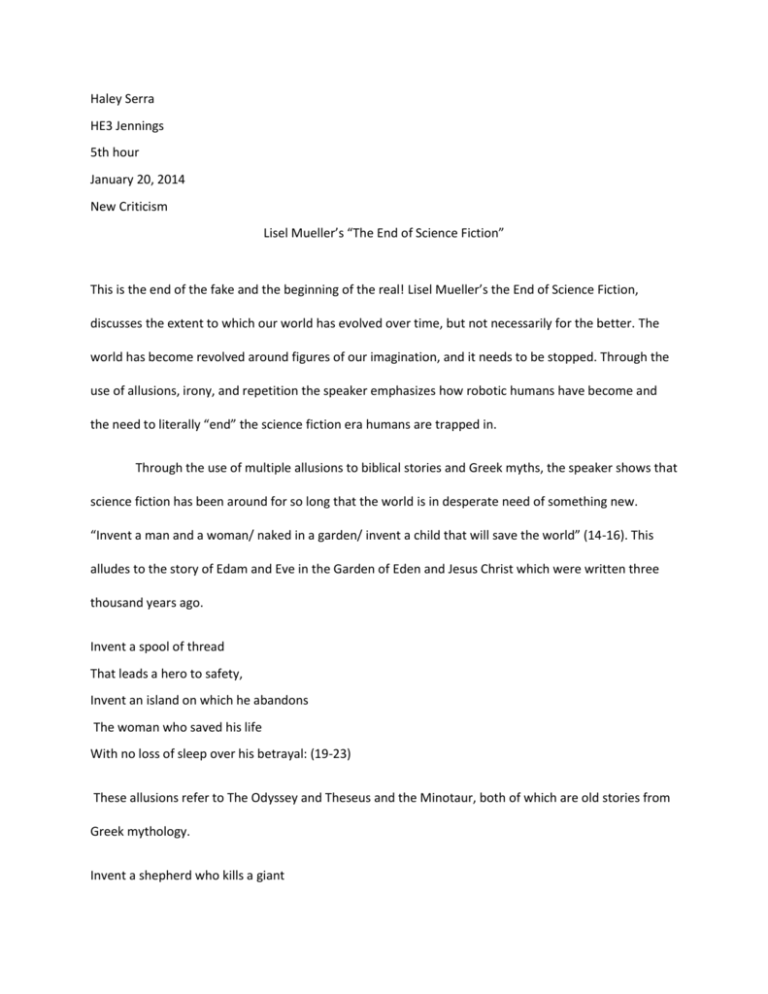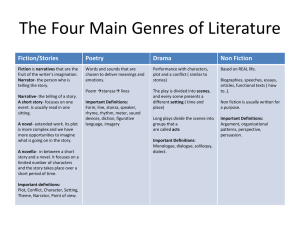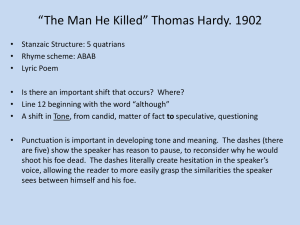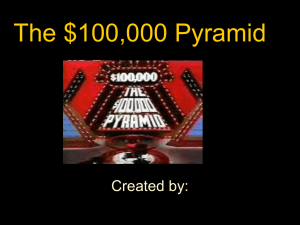Haley Serra HE3 Jennings 5th hour January 20, 2014 New Criticism
advertisement

Haley Serra HE3 Jennings 5th hour January 20, 2014 New Criticism Lisel Mueller’s “The End of Science Fiction” This is the end of the fake and the beginning of the real! Lisel Mueller’s the End of Science Fiction, discusses the extent to which our world has evolved over time, but not necessarily for the better. The world has become revolved around figures of our imagination, and it needs to be stopped. Through the use of allusions, irony, and repetition the speaker emphasizes how robotic humans have become and the need to literally “end” the science fiction era humans are trapped in. Through the use of multiple allusions to biblical stories and Greek myths, the speaker shows that science fiction has been around for so long that the world is in desperate need of something new. “Invent a man and a woman/ naked in a garden/ invent a child that will save the world” (14-16). This alludes to the story of Edam and Eve in the Garden of Eden and Jesus Christ which were written three thousand years ago. Invent a spool of thread That leads a hero to safety, Invent an island on which he abandons The woman who saved his life With no loss of sleep over his betrayal: (19-23) These allusions refer to The Odyssey and Theseus and the Minotaur, both of which are old stories from Greek mythology. Invent a shepherd who kills a giant A girl who grows into a tree A woman who refuses to turn Her back on the past and is changed to salt, A boy who steals his brother’s birthright And becomes the head of a nation. (27-32) The speaker introduces the stories of David Goliath, Lot, and Jacob and Esau up to provide a plethora of examples of old science fictional stories that were the beginning of what now makes up our world. This poem also reiterates how old science fiction is through use of irony. “Invent us as we were” (24). Keyword- were. “ Invent something new” (13). Keyword-new. Both of these lines are pure irony; the speaker tells us to invent things like Adam and Eve and David Goliath as well as the many other biblical stories and Greek myths mentioned previously. All of these were written a long time ago, so they are in fact not new at all. The speaker strategically alludes to these old stories to emphasize how unoriginal science fiction truly is. The last way the speaker portrays its message is through repetition. The speaker repeats “Invent” (13, 14, 16, 19, 21, 24, 27, 33) throughout the entire poem to emphasize the need for humans to become something new. Even though all of the “new” ideas it alludes to are actually old, the need for this new way of life jumps out loud and clear. The last line of the poem as follows: Invent real tears, hard love Slow-spoken, ancient words, Difficult as a child’s First steps across a room: (33-36) Sums up the poem. It challenges “us” human beings to leave science fiction in our past. It suggests that although we may find difficulty in this, as a baby learning to walk does, this will put a sense of significance and meaning back into our words and more importantly our lives.








